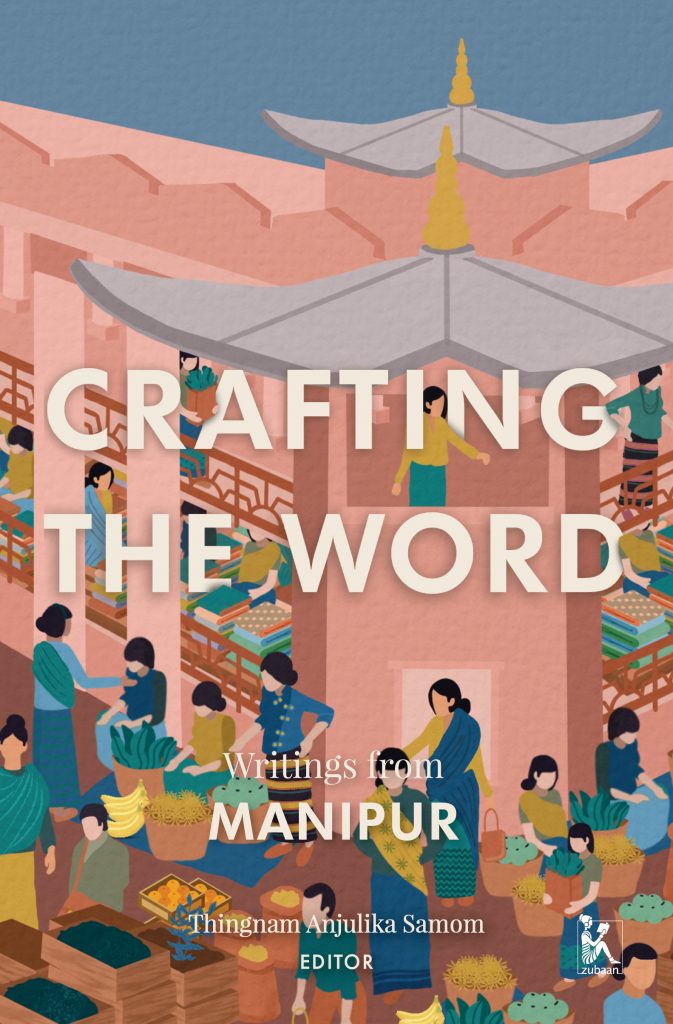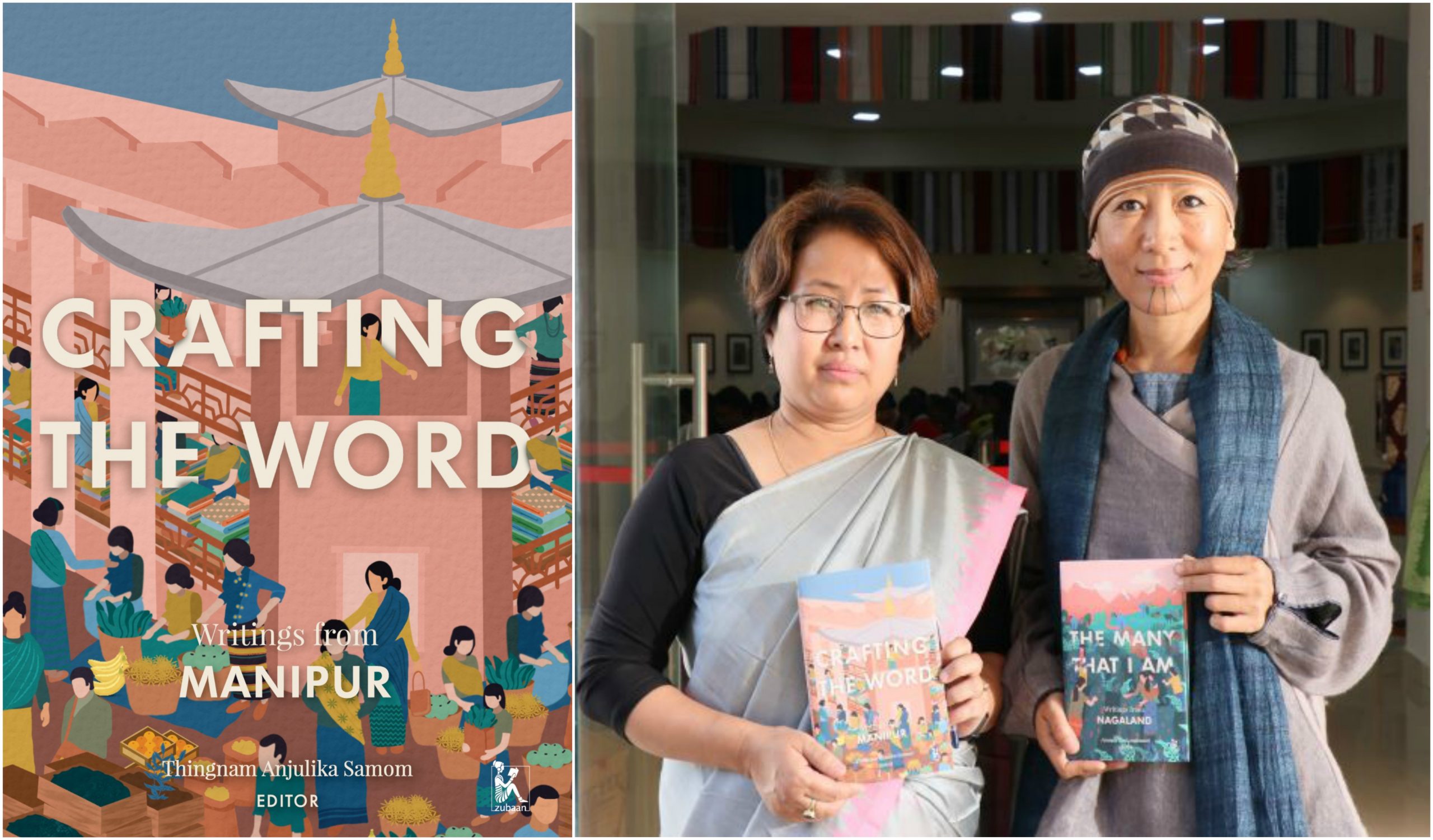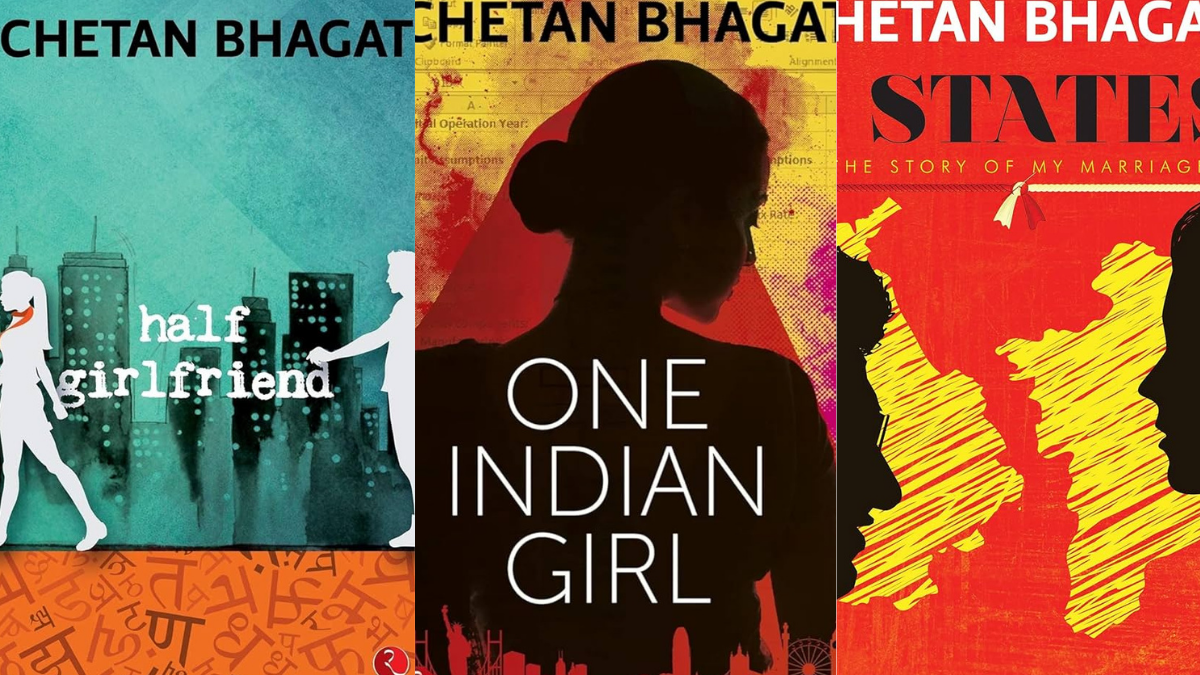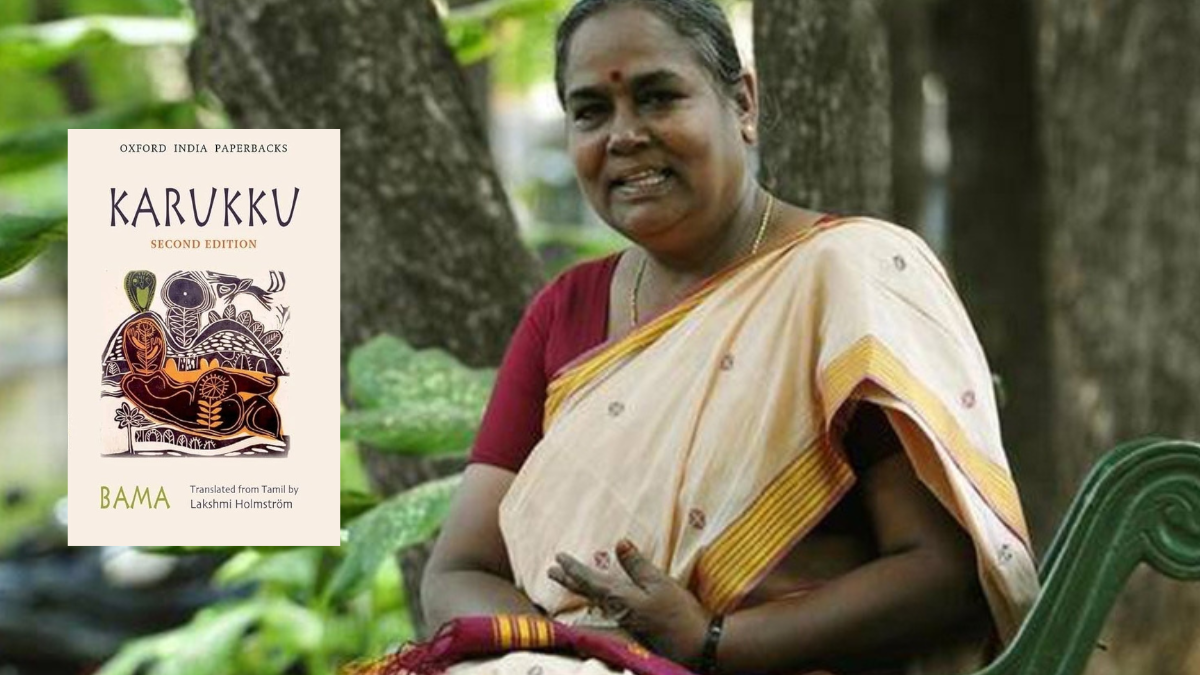Last year I reviewed The Many That I Am: Writings from Manipur. Crafting the Word: Writings from Manipur, is a second book of its kind. Debunking the popular patronization of women from Manipur — which is a result of efforts made by the tourism industry; their brochures full of ‘coy dancing girls’ — what makes this work most authentic is its sheer originality and no misappropriation. Many translators are first-timers, and they’ve been trained via translation workshops, making this work a breath of fresh air in the chaotic environment where only the “who knows who” of the writers and translators hijack the space and leave no room for indigenous work and new interpretation to surface.

Crafting The Word: Writings From Manipur
Editor: Thingnam Anjulika Samom
Publishers: Zubaan Publisheres Pvt. Ltd. 2019 Published in association with the Sasakawa Peace Foundation
Women In Manipuri Literature
In The Journey of Women’s Writing in Manipuri Literature from Crafting the Word: Writings from Manipur, Nahakpam Aruna takes us through the paradox of Manipuri women’s lives. On one hand, where their lives are strictly governed by tradition. The world, on the other, knows them as the voices of resistance — women’s wars (Nupi Lans and Meira Paibi movement).
Crafting the Word: Writings from Manipur, is a second book of its kind. Debunking the popular patronization of women from Manipur — which is a result of efforts made by the tourism industry; their brochures full of ‘coy dancing girls’ — what makes this work most authentic is its sheer originality and no misappropriation.
The typecasting of Manipuri women is clearly evident in a story (Girl’s Hostel: Sri Bhavana by Binodini, translated from the Manipuri by L. Somi Roy) where upon the arrival of Sarojini Naidu in Visva Bharati University, a Manipuri girl is called to welcome her and is specifically asked to “wear her national dress,” the character in the story mutters: “They must have liked our phaneks a great deal.”

The writing space was dominated by male authors; however, it’s women from the royal lineage who first began to foray in the field of literature. Fortunately, this didn’t remain an elitist pursuit — though every art form remains one — other women writers quickly picked up and began making their marks.
Stories That Smash Patriarchy
This anthology is full of stories that question the status quo. The ease with which each of these stories critiques the society, and the simple language in which they’re written is the quality that a reader will cherish every time one is reading Crafting the Word: Writings from Manipur.
In Chongtham Jamini Devi’s Kitchen Duty (translated from the Manipuri by Thingnam Anjulika Samom), Ekashini mutters aloud: “How lazy men can be! All these household chores – sweeping, mopping the floors, fetching water, washing clothes, cooking food – everything is supposed to be women’s responsibility. But men don’t even acknowledge all the work that women do, or even how hard it is.”
This woman, much like the middle-aged woman in the single-sentence 1000-page monologue in Lucy Ellman’s Ducks, Newburyport — obviously with less intensity — continues, “What’s to be done? In our society, we women have to dance to the tune of men’s drumbeats. When our monthly periods come, we are regarded as untouchables and barred from the kitchen. We are called impure and not allowed to even touch many things. Didn’t you say that? Since this woman is an untouchable these days, Dear Father, you being the pure one, you’ll have to cook today.”
Shadow (translated from the Manipuri by Thingnam Anjulika Samom) by Lairenlakpam Ibemhal is a rebellion in love. The way the male in a heterosexual relationship exercises his power; in a role reversal the female lover, in this poem, says: “’Tis a little I drank / ‘Cos my friends coerced me.” — a typical excuse which males make, telling him that she hasn’t transformed, it’s “Just that I have become you.”
This anthology is full of stories that question the status quo. The ease with which each of these stories critiques the society, and the simple language in which they’re written is the quality that a reader will cherish every time one is reading Crafting the Word: Writings from Manipur.
In Voices from the Womb from Crafting the Word: Writings from Manipur, the girl child in the womb of a mother appeals to her during war times — in an atmosphere of violence, guns, tear gas shells and bombs: “Then dear Mother, Let us stay in your womb forever.”
The Defeat explores the internalized jealousy and male ego of Bipin, who is a well-known “p — Nightmare, Nee Devi ro-feminist” and “supports” his wife in all that she does. Nalini is envied by many, but little she know that her husband is insecure because she’s an achiever. She only gets to learn this when her husband says: “Silence is also a kind of conceit. I want to live with dignity. I am a man.” This only translates to this, as in the story, “You taking me wherever you wish, making me stand anywhere you wish, all these I won’t agree to. I am a man; I do not wish to stand behind you and be introduced by you to those who are felicitating you.”
Rekindling Imagination of Young Girls and Women
Whenever we think of lack of awareness about anything we’re quick to conclude: the reason is education. However, many will agree: certain things need mindset change. We need an altogether new language or making what we’ve more accommodating. And that’s what this collection in Crafting the Word: Writings from Manipur advances towards: it not only touches upon, but brings to the forefront the issues facing our society.
This, below, best describes the struggle of anyone from LGBTQIA+ community against heteronormativity.
“This tradition which decides that unless the union is of a man and a woman, two people can’t become life partners – what kind of oppressive tradition is this? Are the bonds of the body priced higher than those of the heart? Love is a manifestation of the inner soul; has it become an expression merely of the outward appearance? Does love have to depend on the approval or disapproval of others?” — Nightmare, Nee Devi
The Skin of a Woman describes the “expectations” from a woman. How her skin should be “spotless” and “carefully colored in the right places,” along with being “full of warmth.” In Monthly Flower, Haobijam Chanu Prema, takes on the stigma surrounding menstruation. Much of it is internalized during by distasteful comments that a young girl has to face. Even educated women, and people, hush around when we talk about periods. We’ve seen that it’s not even talked about, it’s at best gesticulated and the other person has to catch the signal: “It must be that matter.” Similarly, struggles of an independent modern, beef-eating women who doesn’t wear bangles just to yell “Hey! I’m married” faces the worst from society. And it’s deftly portrayed in the graphic piece A Market Story.
Reading a moving poem, Breaking the Shame, by Yuimi Vashum where she writes, “I will teach my daughter to own every part of her body,” and “My daughter will be strong, not meek; Earn respect not take; give only when deserved,” I’m convinced that that’s what this collection is aimed to achieve. Rekindling the imagination of young girls and women, this collection in Crafting the Word: Writings from Manipur empowers them.




